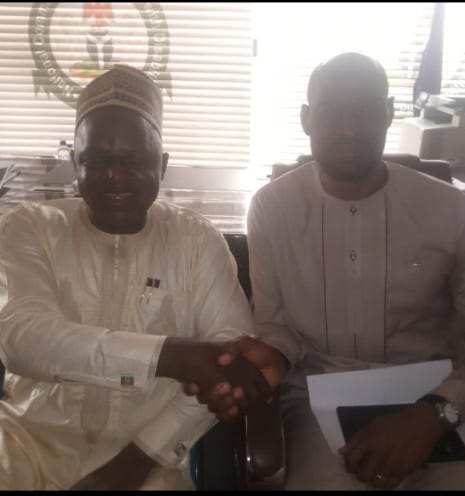In a bid to enhance the planning and implementation of disability-inclusive projects across Nigeria, Chief Ayuba Gufwan, the Executive Secretary of the National Commission for Persons with Disabilities (NCPWD), has underscored the critical importance of accurate data collection. Gufwan emphasized that data remains a vital tool for ensuring that programs aimed at improving the lives of Persons with Disabilities (PWDs) in the country are effective and meet their intended objectives.
Gufwan made this assertion during a recent meeting in Abuja, where he hosted a delegation from The Leprosy Mission Nigeria. Reflecting on the Commission’s performance over the past four years, he highlighted how data gathering and proper processing are foundational to the socio-economic development of any nation, particularly when addressing the needs of vulnerable populations like PWDs.
“We must prioritize accurate facts and figures of the various clusters within the disability community to get our planning and execution right,” Gufwan said, stressing the need for data-driven decisions in the Commission’s work. He went on to insist that the era of speculation is over, and Nigeria must now focus on solidifying the actual number of persons living with disabilities in the country.
“For many years, it has been widely believed that there are about 35.5 million persons with disabilities in Nigeria, which is a staggering figure. However, we must revisit this estimate, verify its accuracy, and update it if necessary. Accurate data is essential for ensuring that our programs are tailored effectively to the needs of this community,” he added.
Gufwan’s remarks come at a crucial time, as the Commission evaluates its progress in achieving its mandate of promoting the rights and inclusion of PWDs in Nigeria. He noted that the accurate enumeration of people with disabilities is pivotal for executing sustainable programs that address their unique challenges in areas such as healthcare, education, employment, and accessibility.
The Executive Secretary’s call for comprehensive data collection was met with agreement by Dr. Pius Sunday Ogbu, Head of Programmes and Operations at The Leprosy Mission Nigeria (TLMN). During his presentation, Dr. Ogbu outlined TLMN’s policy direction and its evolving mission to support the Federal Government’s inclusive initiatives. He revealed that TLMN is expanding its focus beyond leprosy treatment to include other forms of disabilities, such as mental health issues, in recognition of the diverse needs within Nigeria’s disability community.
“Leprosy Mission Nigeria is shifting its focus to broader disability-related issues, particularly mental health, and is committed to working closely with the NCPWD to ensure that no one is left behind,” Ogbu stated. He further mentioned that TLMN is preparing to celebrate its 150th anniversary in Nigeria, and part of the celebration will include conducting a comprehensive survey to assess the progress made with the Discrimination Against Persons with Disabilities (Prohibition) Act of 2018, since the Commission’s inception.
Dr. Ogbu lauded the Commission’s efforts and noted that this survey would serve as a tool for measuring how effectively the law is being implemented across various sectors, and where more work needs to be done. This initiative, he explained, would be championed by the NCPWD, demonstrating the Commission’s commitment to ensuring that disability rights are upheld and promoted.
Additionally, Dr. Ogbu acknowledged that TLMN has secured partnerships with various international bodies, including the Australian Embassy, which has shown a keen interest in supporting the work of the NCPWD. “The Australian Embassy has expressed its willingness to provide financial assistance to help alleviate the challenges faced by persons with disabilities in Nigeria. These funds will be pivotal in addressing pressing issues and ensuring that disability-inclusive policies and programs are adequately funded and implemented,” he said.
The collaboration between TLMN, the Australian Embassy, and the NCPWD is expected to boost efforts aimed at achieving inclusivity and improving the quality of life for PWDs. Chief Gufwan affirmed the Commission’s dedication to leveraging partnerships like these to enhance program delivery and ensure that persons with disabilities have access to the resources and services they need.
He concluded by reiterating the need for continued efforts to collect, analyze, and use accurate data, noting that without it, any strategy or policy would lack the precision required to make a meaningful impact on the lives of PWDs. “We are committed to working with all stakeholders to build a solid data framework that will inform our programs and help us meet the needs of every individual within the disability community,” Gufwan remarked.
As the NCPWD and its partners move forward, the emphasis on data-driven approaches is expected to usher in a new era of informed decision-making that will drive Nigeria’s disability rights movement forward, ensuring that no person is left behind in the nation’s quest for development and equality.


